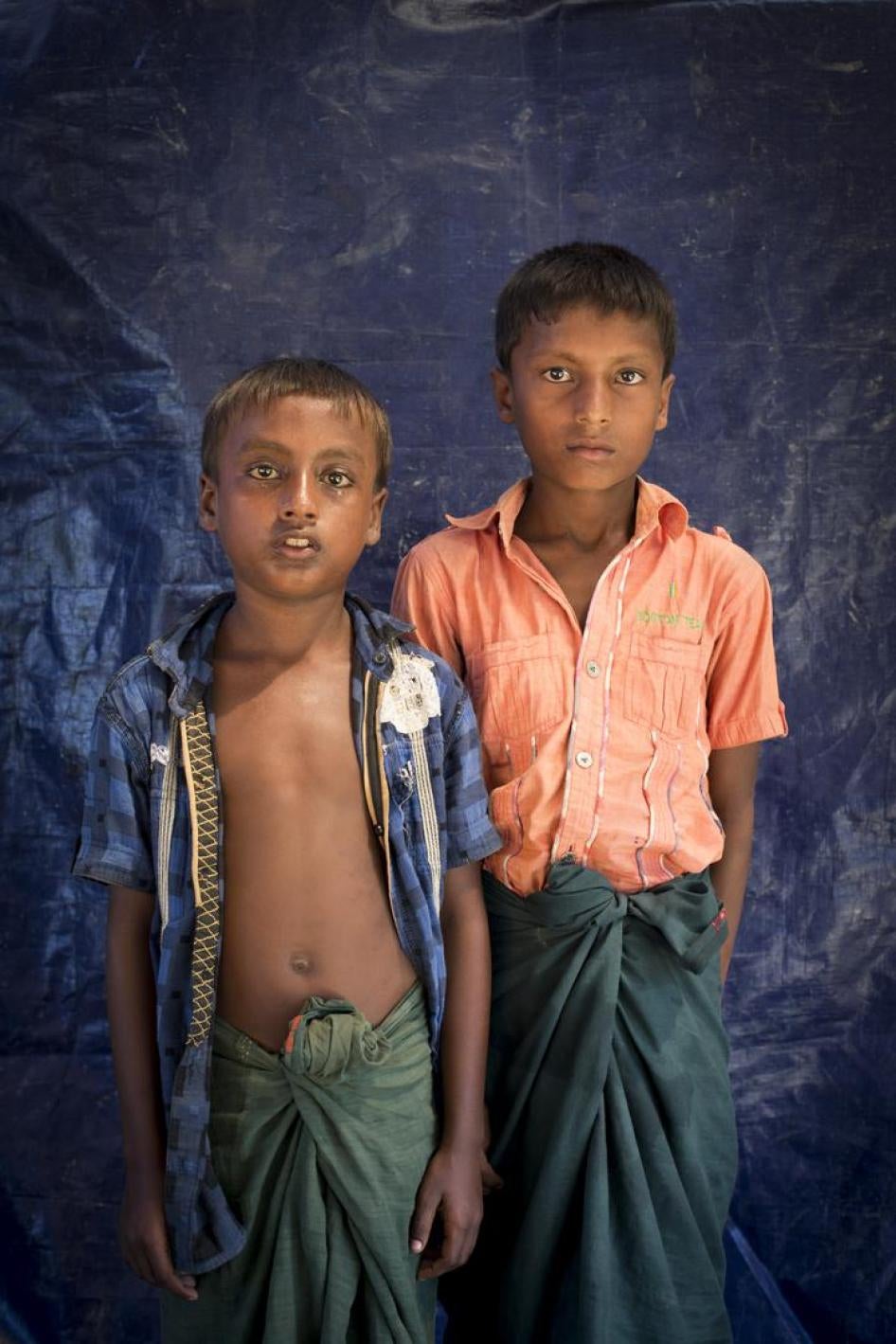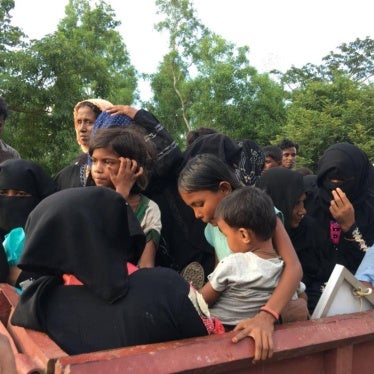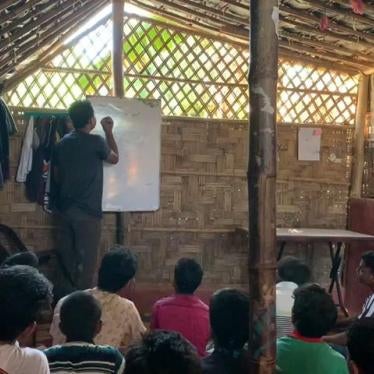“Abdulaziz” is only nine years old, but his serious look and stern demeanor makes him seem much older. There’s a reason for that: three weeks ago, he watched Burmese soldiers murder his parents and siblings, and now he has to look after his little brother, “Zahid,” 6, the only survivors from what was once a family of seven.
When Burmese soldiers attacked hundreds of Rohingya Muslims in the village of Tu Lar To Li on August 30, Abdulaziz took his brother Zahid by the hand, and together they swam across an adjoining river to escape, even as soldiers fired at them, killing some of those swimming alongside.
From across the river, the little boys watched as the soldiers first shot dead their father Mufiz, 35, and then took their mother Rabu, 30, their brothers Janatullah, 10, and Shabullah, 5, and their sister Mumtaz, 3, into a nearby house. The house was soon engulfed in flames.
Nearby in the sprawling Kutupalong refugee camp on the Bangladeshi side of the border stood another little boy, 10-year-old “Ali,” whose parents and three siblings were killed in the same massacre by the Burmese military. According to those taking care of him, Ali has not spoken since the killings.
The ethnic cleansing against the Rohingya Muslims since an attack by Rohingya militants on police posts in late August has harmed countless children, many of them shot or hacked to death by uniformed soldiers.
Approximately 480,000 Rohingya have fled to Bangladesh, and according to UNICEF the majority among them are children. These children are deeply traumatized and have had their lives ripped apart by the violence they have experienced and witnessed.
Reading about half a million Rohingyas fleeing violence in Burma in just over one month may leave many feeling powerless. But each refugee, like Abdulaziz and his brother Zahid, have real needs that can be met – from safe shelter, food, and clean water, to psychosocial counseling to deal with the trauma they experienced, and, urgently, an education that can eventually help them realize their full potential. Sadly, the United Nation’s emergency request for funding for education has fallen on deaf ears, even though more than 100,000 of the refugees are children who should soon be in school.
Those responsible for these crimes need to be held accountable. But for the children who have lost their families, experiencing some sense of normalcy, as well as justice, is essential to healing such deep wounds.









